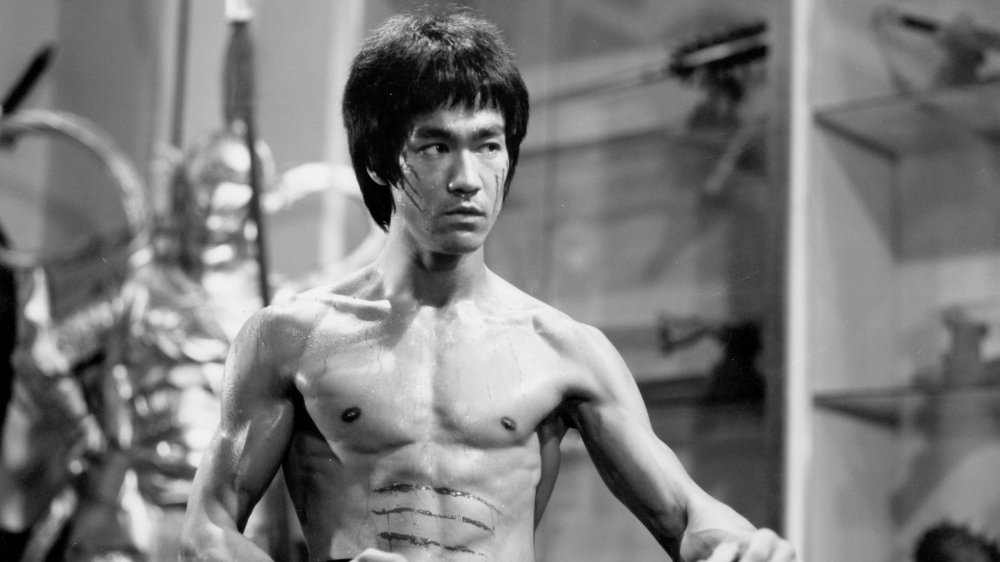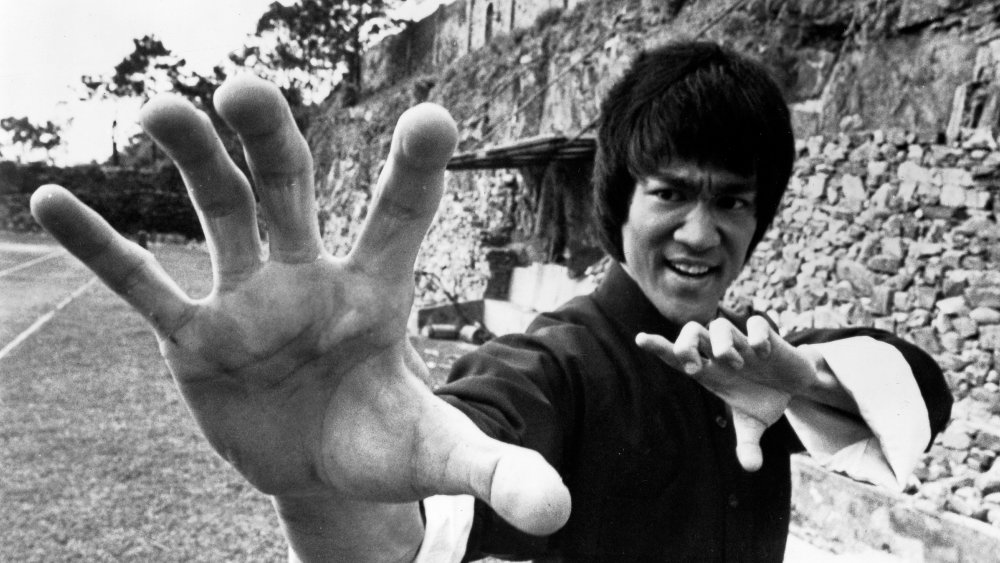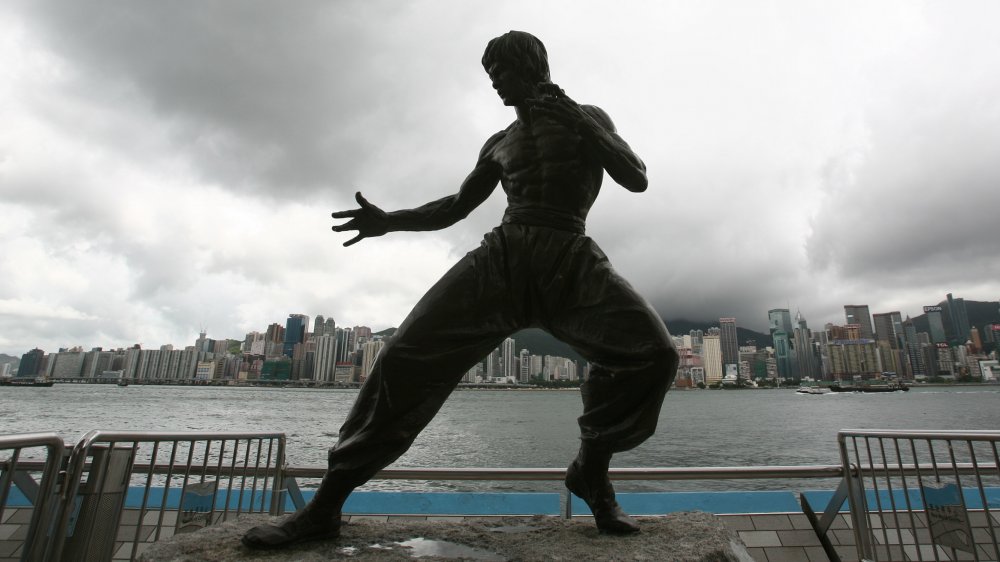This Was Bruce Lee's Hidden Passion
Say the name Bruce Lee and people think of martial arts. His lightning-fast moves were a treat to behold. For decades, his movies and fighting technique influenced filmmakers, stuntmen and athletes alike.
Bruce Lee, however, was more than a martial arts figure. He had hidden depths, such as his love for poetry and philosophy. And when you think about it, poetry and philosophy shaped much of his fighting style.
According to the Poetry Foundation, Lee was not only an accomplished poet but also translated poems by other writers. His passion for both poetry and philosophy runs deep. As Open Culture wrote, Lee studied philosophy at the University of Washington before he auditioned for the Green Hornet and even sought to explain the connection between philosophy and martial arts. In his downtime, Lee wrote poems that often echo his own ideas about martial arts. These poems were collected in a book called Bruce Lee: Artist of Life after the Lee family released the works. Open Culture called the poems a little dark as the verses tended to focus on the fleeting nature of life. Though to be honest, that makes sense considering his view of martial arts.
Many of Lee's poems were written down on small pieces of paper. He expressed many of his ideas about martial arts and philosophy in these poems, explained the Poetry Foundation. He talks about how people should create a version of themselves they like, not how others will see them.
He wrote down his philosophies in notebooks
Lee moved to the United States from Hong Kong when he was 18, and this was when he began turning to poetry to express himself.
The Seattle Times reported that when Lee was attending college, he carried notebooks with him. He wrote — not school notes, because he famously had trouble at school and eventually dropped out — but to jot down his ideas on martial arts, Eastern philosophy, kung fu principles, and even drew fighting style diagrams. These notebooks were integral to creating his own martial art style, Jeet Kune Do, and helped him cope with the many thoughts in his head. It was in these notebooks where Lee sometimes wrote his poems.
Lee wanted people to think about his different philosophies and apply these to their lives, his official website said. He believed people, in life and in fighting, should be like water –formless and adaptable. He also said you have to be a practical dreamer but also take action, research your own experience, and understand that having no limits is a limitation. Lee had many philosophies that he wove into his teachings.
His passion for philosophy was evident early on. While still a student in Seattle, he started writing a book on kung fu. He even added photos of him demonstrating stances that he first figured out on his notebooks. Later, this guided him when he was teaching his celebrity students.
It helped him balance his yin and yang
Lee did not just write his poetry and philosophy for himself. Sure, these very much carried over to his martial arts, but, like many poets before him, Lee also used his writing skills to express his love. He frequently wrote letters and poems to his wife Linda, per his website. And his writings are also influenced by other writers. A voracious reader — his personal library reportedly consisted of more than 2,500 books – he'd take inspiration from others. Open Culture said his daughter claimed his favorite poem is "If" by Rudyard Kipling, and this inspired Lee's own poem "Boating on Lake Washington." He even had a plaque put up in his house, engraved with the Kipling verses.
His poetry helped him balance out his more masculine side. People who knew Lee said it was his way of cultivating yin and yang, the balance of life, and how he made sense of the warring emotions and ideas within himself.
Of course, Lee did not become famous for his poetry, and he didn't get a chance to write more. But his secret passion for poetry and philosophy survived and gave a glimpse into how he worked through his feelings and how he looked at life.


